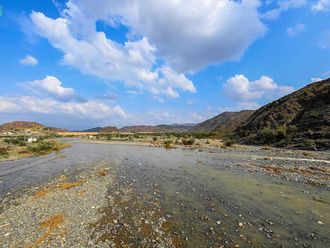Washington: Iran should use a nuclear deal agreed this week with six world powers to improve its own economic situation, and not to pursue “adventures” in the Middle East, Saudi Arabia’s foreign minister said on Thursday.
“We hope that ... if the deal is implemented that the Iranians will use this deal in order to improve the economic situation in Iran and to improve the lot of its people ... and not use it for adventures in the region,” Foreign Minister Adel Al Jubair said during a photo opportunity with US Secretary of State John Kerry.
“If Iran should try to cause mischief in the region, we’re committed to confront it resolutely,” he said.
In the first public comments on the Iran agreement by a senior Saudi official, Al Jubair did not explicitly endorse or reject the deal. He stressed the need for inspections to verify Iran is complying and the “snapback” of sanctions if it is found to be cheating.
US Defence Secretary Ashton Carter is expected to travel to Saudi Arabia as part of the Obama administration’s efforts to convince sceptical allies in the region about the benefits of the Iran nuclear deal, National Security Adviser Susan Rice said on Wednesday.
Carter’s trip next week, which the White House already announced will include a stop in Israel, is one of several initiatives President Barack Obama and his staff are taking to sell the controversial deal at home and abroad.
Secretary of State John Kerry is also due in the region.
“I will be meeting with the entire GCC and giving them a full briefing, download, answering any questions they have on August 3,” Kerry said after his meeting with Al Jubair.
The Saudi minister said the meeting with the Gulf Cooperation Council would take place in Doha.
Meanwhile, Saudi Arabia’s Prince Bandar Bin Sultan, a former head of the kingdom’s intelligence services and its veteran ambassador to Washington, has said Iran’s nuclear deal will allow it to get an atomic bomb and “wreak havoc in the region”.
Writing in Lebanon’s Daily Star on Thursday, Bandar, who left office a year ago after orchestrating Saudi aid for Syrian rebels against Iran-backed President Bashar Al Assad, said that Arabs were now turning away from the United States.
“People in my region now are relying on God’s will and consolidating their local capabilities and analysis with everybody else except our oldest and most powerful ally,” he said in the opinion piece.
Riyadh’s public response to the deal was a short statement late on Tuesday that said it backed any agreement that would stop Iran getting an atomic bomb, but stressed the importance of strict inspections and the ability to reimpose sanctions.
Privately, officials and Saudi media with close ties to the ruling family have railed against the deal as likely to embolden Iran to give more backing to regional militias.
“The strategic foreign policy analysis, the national intelligence information, and America’s allies in the region’s intelligence all predict not only the same outcome of the North Korean nuclear deal, but worse,” he wrote, referring to Pyongyang’s successful development of an atomic bomb.
It is not clear if the prince, a nephew of King Salman Bin Abdul Aziz Al Saud, plays any role in Saudi policymaking since he was replaced as intelligence chief in 2014. Saudi sources quoted him in late 2013 as attacking US President Barack Obama’s approach to the Middle East.
“It will wreak havoc in the Middle East which is already living in a disastrous environment, whereby Iran is a major player in the destabilisation of the region,” Bandar said.











